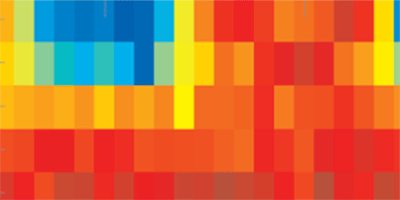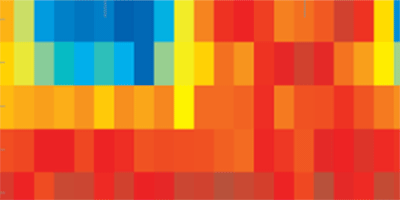Noise and the Single Qubit
A qubit made of a single trapped ion loses coherence in a noisy environment. Researchers have turned this seeming annoyance into a useful tool: by watching the spin, they can measure how noise sources vary with frequency. So far, single-qubit spectrum analyzers have only been studied for cases in which the external noise barely perturbs the ion. In a paper in Physical Review Letters, Shlomi Kotler and colleagues at the Weizmann Institute of Science, Israel, report a single-qubit device in which the coupling to the noise is strong. They find that these conditions result in significantly better spectral resolution.
Decoherence spectroscopy relies on the fact that a quantum system modulated at a particular frequency is highly sensitive to noise at that frequency. By varying the modulation frequency, the noise spectrum can be mapped out. If the noise source is too strong, however, the method fails. Kotler et al. showed theoretically that spectral analysis under these conditions is still possible if the noise source consists of discrete frequencies. To test the idea, the authors used a single trapped strontium ion to analyze the noisy background magnetic fields generated by power lines in their lab. They were able to detect the frequency peaks in the ambient magnetic noise with resolution about a factor of 10 better than expected in a weak-coupling measurement.
The Weizmann researchers suggest a number of applications for their single-spin analyzer, including measurement of brain waves with magnetoencephalography and detection of fields near nitrogen-vacancy-center qubits in diamond. – David Voss





